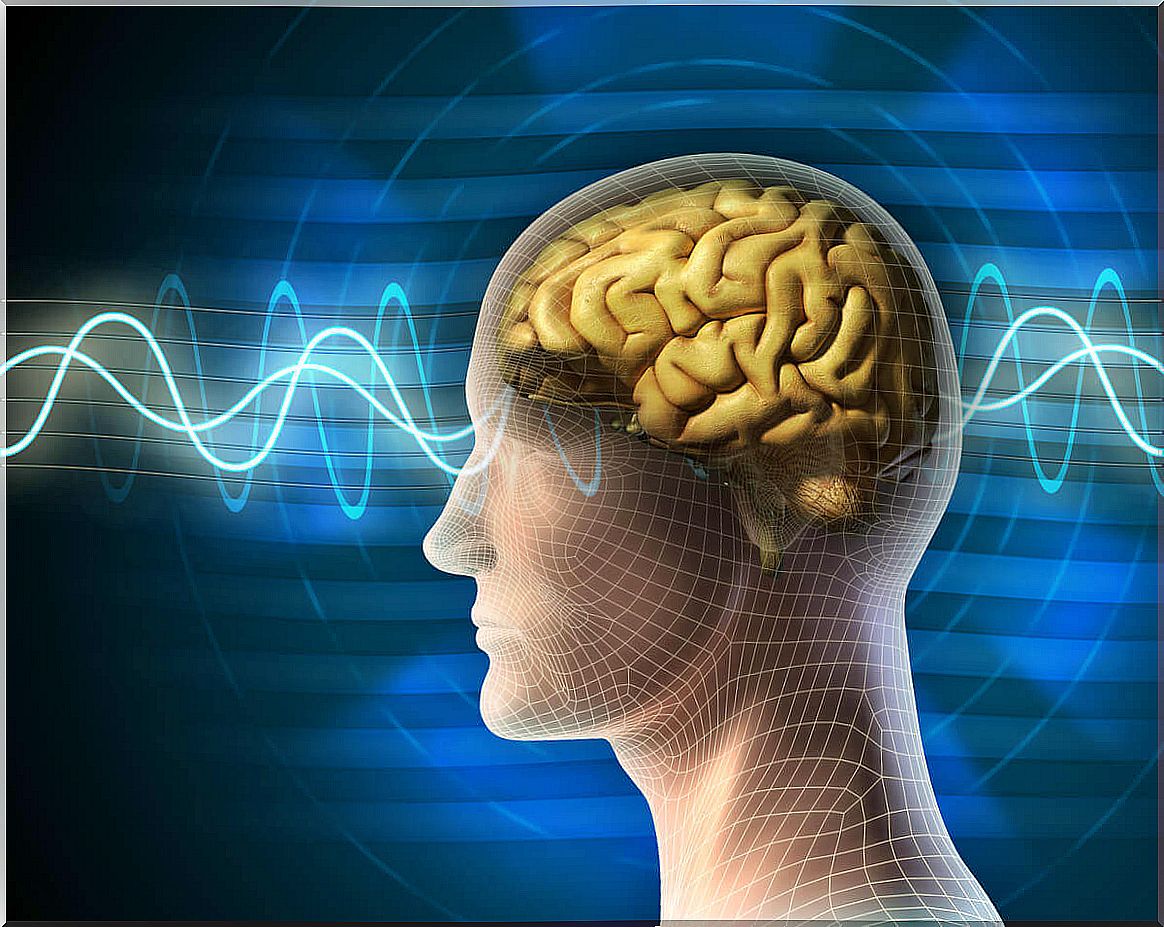Forensic Neuropsychology: Definition, Objectives And Fields Of Application

Ever wonder what a neuropsychologist can do in court? As we know, neuropsychology takes into account the relationship between the brain and cognitive, behavioral and emotional functioning. All this helps to better understand many problems and difficulties of everyday life. Even so, within the discipline, there are divisions that are related to the type of application of knowledge. One is forensic neuropsychology.
This discipline has been in the spotlight since the 1980s, thanks to the usefulness it can have in some court cases. Therefore, it is interesting to understand what it consists of and what its possible applications are. This, for example, will tell us when it is necessary to consult an expert.

Defining Forensic Neuropsychology
Forensic neuropsychology refers to the application of knowledge in the field of neuropsychology to legal matters. Specialists in this discipline give evidence during the trial of people who have some type of cognitive impairment or dysfunction. Therefore, this professional takes the lead in cases where the person who suffers the damage asks for compensation for it.
In history, psychologists began to gain prominence as witnesses in the field of law in the 1960s, thanks to the iconic trial of Jenkins v. USA . The District of Columbia appeals court recognizes that the opinion of mental illness experts can be very helpful in many cases.
Even so, forensic psychology did not appear until the early 1980s, especially related to the following factors:
- Increased research on the relationship between behavior and the brain through quantitative methods.
- Interpretation strategies to infer the presence, type and location of a neurological pathology.
- Decision making, such as determining a disability.
- Description of behavioral and cognitive profiles characteristic of each of the neurological diseases.
- Implications of harm to psychosocial functioning.
- Determining a prognosis.
- Decisions on the most appropriate interventions.
What is the object of study of forensic neuropsychology?
As we explained earlier, forensic neuropsychology translates clinical neuropsychology models, methodology, instrumentation, and knowledge into a legal context.
She takes on ideas and functions mainly from the forensic area, thanks to the problems and situations she must face. In other words, in the objective that it has, it doesn’t matter so much if the person presents cognitive alterations or not, but how these difficulties affect the specific event that is being legally considered.
The main tasks of the forensic neuropsychologist in civil and criminal cases were determined as follows:
- Determine the person’s dysfunction
- Establish the effect of the dysfunction on the person’s daily life.
- Give an opinion on the forecasts that may result from this deficit.
- Establish the relationship between the cause being judged and the resulting dysfunction.
Therefore, the objective of this course is to carry out a sensitive and reliable identification of disorders, starting with a description of them and establishing a relationship with the central nervous system. It is also possible to make future recommendations that include assessment and treatment.
Neuropsychological reports: is there a difference between the clinical and forensic branches?
The neuropsychological report is made when the evaluation has already been done. Through it, all the results found during the evaluation are indicated. Even so, it is important to clarify that, depending on the field of neuropsychology, they have different purposes and components. Next, we’ll expose the commonalities and those that are different.
To get started, we’ll start with the common points.
- Clinical history : here, the medical history and its social development are reported.
- Specificity of the injury : the location where the injury occurred and the agents that caused it are reported.
- Changes : the results of the assessment regarding the difficulties that may occur at the cognitive, emotional and social level are presented. Likewise, the severity of the injury is determined.
- Prognosis and rehabilitation : in this case, the prediction regarding brain damage is reported. In addition, you need to make some recommendations to be followed.
However, there are also important differences regarding the reporting of forensic neuropsychology. In the latter, the causal indication between the lesion and the changes that occurred as a result of it must first be included. In particular, changes related to the effects on the development of your work and activities in the home should be specified.
Second, the level of disability that the affected person has to carry out the aforementioned activities must be determined. The difficulties they may have at work or the inability to do it should be made explicit.
Finally, it is necessary to indicate whether these sequelae are stable, have the possibility of improvement or, on the contrary, can worsen. That will depend on the type of compensation or damage they may have in the long run.

Fields of application of forensic neuropsychology
These applications can be divided into two broad areas of law: they can have a major impact on the verdicts rendered in a judgment or a negotiation.
labor and civil law
In this case, several aspects can be included:
- Civil incapacity or interdiction. In this case, the assessment performed provides information about the affected faculties and their functional consequences, indicating whether it is necessary to establish the presence of a disability in the person.
- Assessment of disadvantages, consequences and damages. It is the field where the assessment of forensic neuropsychology is most important. In this case, it is responsible for evaluating the cognitive and emotional sequelae caused by acquired brain damage. It can be driven by motivations and legal consequences, since, by this opinion, you may receive some type of compensation or change in the employment situation.
- Determination of incapacity for work. In this case, it helps to determine the existence of brain sequelae. Likewise, it should explain the influence such damage can have on skills and aptitude for the job.
criminal law
Criminal law is another area of law where neuropsychology is gaining ground, especially when pathologies related to brain damage appear.
In addition, it can identify rare symptoms that are not caused by neurological pathologies. These may include simulations or the increase in cognitive deficits due to psychiatric disorders. Among the main areas of expertise are:
- Ability to face a trial. For this aspect, the neuropsychologist helps to target the presence and magnitude of behavioral and cognitive difficulties. Likewise, it should indicate whether they can interfere with the performance of legal activities.
- Criminal liability. Here, the role is to provide information that refutes or demonstrates some cognitive problems. All of this can condition the understanding or not of the criminality of the activity. Also, whether that person can be held responsible for directing their conduct in relation to the criminal act they may be accused of.
- Assessment of victims. In this role, assessment focuses on knowing the brain consequences a person may have had from attacks received by others.
Finally, it is important to understand that forensic neuropsychology, despite being a recent discipline, has had a major impact on your area of work. This is because the functioning of our brain can have a significant impact on the decisions that can be taken within a legal process, in many cases conditioning the direction of a verdict.









